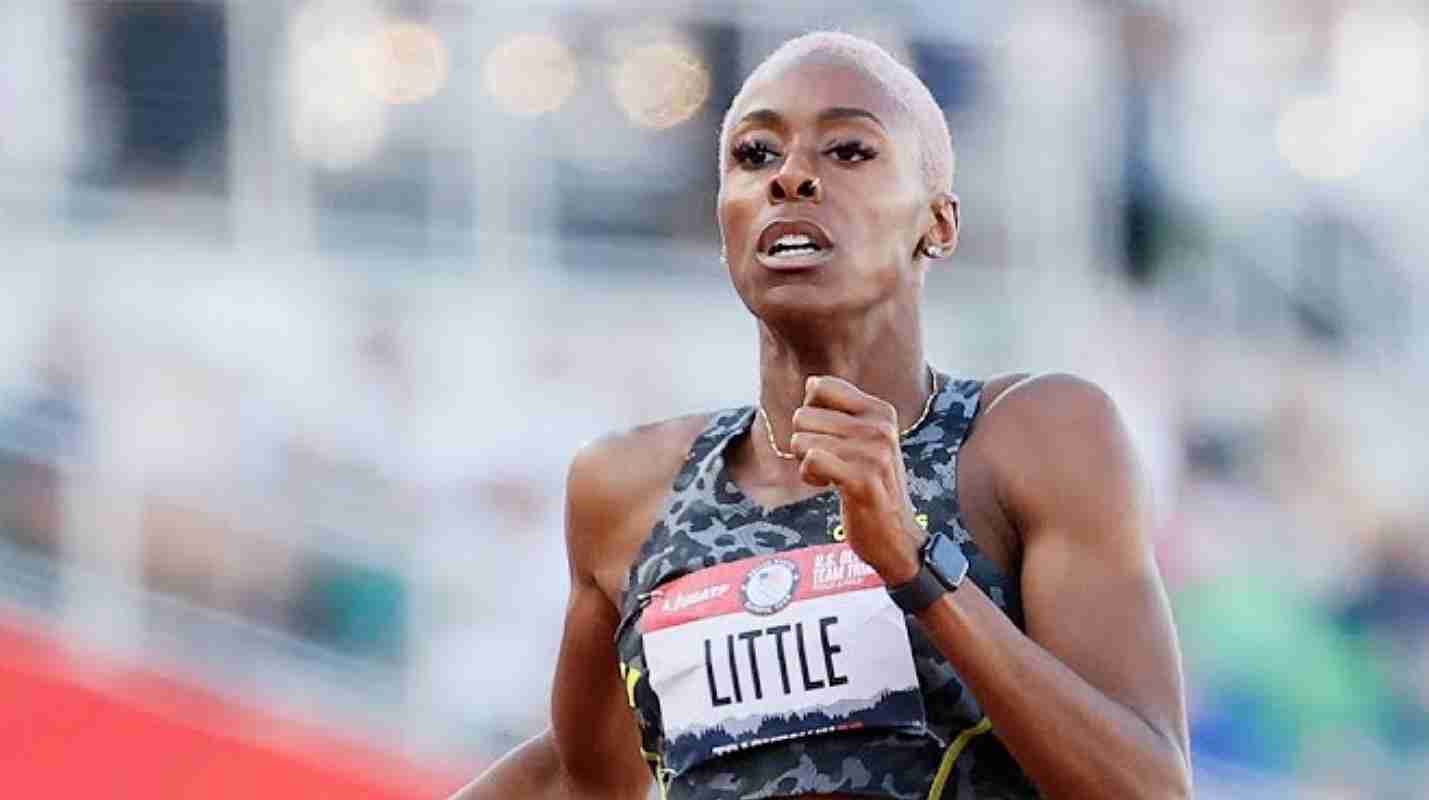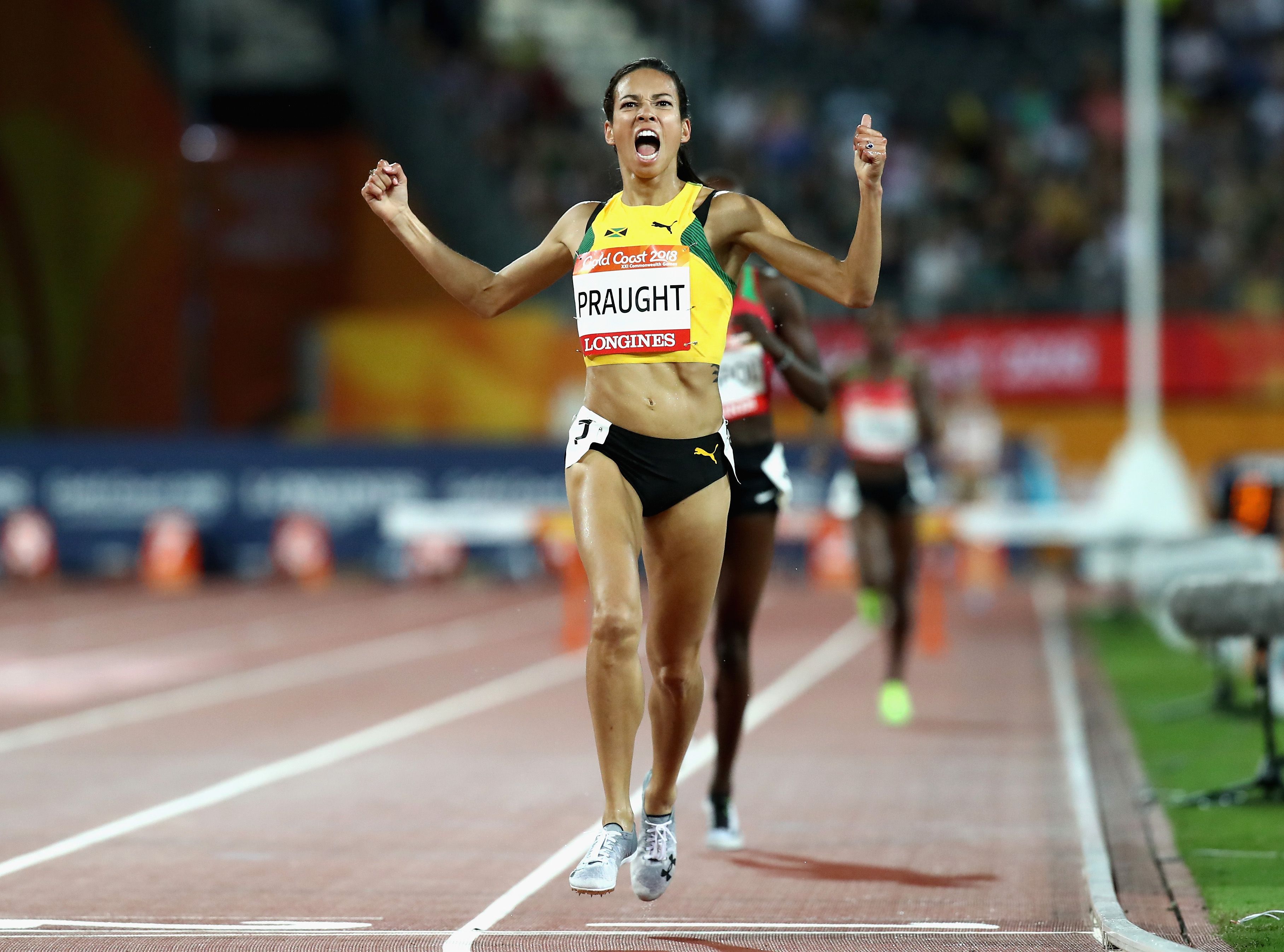

Happy Friday POU!
We continue reading the thoughts of black track and field athletes on racism on and off the track. This is reprinted from a 2020 Sports Illustrated article: Black On The Track.
To you, what does it mean to be Black in America?

Dalilah Muhammad: 2019 was an awakening year for me, personally. I witnessed injustices and inequalities in my life as a Black athlete, a Black woman and a Black runner in America. It’s almost difficult to put into words. I started to notice it for several reasons. For starters, I thought about how many times in my life I’ve been told that as a Black woman, I can’t be super emotional, and to be mindful of 100% of the things I’m saying during interviews. I’ve been told, don’t speak too loudly and don’t come across in any way that might convey a stereotype of an African American woman. For me, you live with these social injustices regularly and what became so apparent to me this year is how widely accepted they are. There are these rules that I must follow as a Black woman.
As a child, I don’t think I was very aware of it. As a kid you’re running and you’re enjoying what you do on a day-to-day basis. From first to sixth grade, I was one of three Black students in the entire school. My mother shipped me out to school from my all-Black neighborhood and that was my first encounter of a different world in an all-White school. I saw how different I was perceived in that school vs. how I was in my own neighborhood.
At that age, everyone is friends and I don’t have any stories of racism, but there’s an undertone of: You are different. I did really well in school. I had a lot of friends. I was good at sports and they liked me for that reason, but at the end of the day, there was always a difference between me and the children in that school. That was my first awareness of where I stood in America.
Mohammed Ahmed: Despite growing up in North America and having my education here during my formative years, I have a different identity given that I am a recent immigrant of color and from Africa. There is a different type of baggage that I have to carry. When I came to the United States, it was the first time that my Blackness was at the forefront of my identity. When you’re young, you’re probably not thinking too much about the system. You make sense of things as they come to you.
When I moved to Madison, Wisc., to attend the University of Wisconsin–Madison, that was the first time that race and color were at the core of my being. It was something that I had to confront, and it shook me a little bit. In many ways, Madison is a progressive city, as the population is fairly split between liberal and conservative political views, but it’s predominantly white. That made my experience as a Black man more severe and it magnified things. In class, I’d be the only person of color. For every single topic discussed pertaining to people of color, people would look to me. It got to the point where I would take it upon myself to represent my people. People expected that of me and so I tried shouldering it and it got to a point where it became super exhausting. It wasn’t just in the classroom.
You can really feel your Blackness. When I’d come across another person of color walking on campus, we’d both look at each other. We’d acknowledge each other and greet each other because there was a type of loneliness that both of us felt from living within that city and community.
Marielle Hall: Being Black in America is a very layered experience. That’s how I always looked at it. No one’s story is simple, but being Black and living in this country, there is something that’s compounded. It’s never just being a woman. It’s being a Black woman. It’s never being an athlete. It’s being a Black athlete. It’s never being a writer. It’s being a Black writer. I think that title follows you positively and negatively. I guess I have (sometimes maybe to my own detriment) just carried more than I feel my peers do. It is not necessarily a burden, because I do feel incredibly proud to be who I am and have the history of my family. But it does sometimes feel a little more complicated than I’d like it to be.

Aleec Harris: From my experience, being Black in America is being born a step behind everyone. I was born in hard conditions, so we didn’t have too many means to get by. I didn’t get to participate in many after school programs or camps or vacations. As you grow up and go through school, you start to hear of other kids’ experiences and the things they did growing up. I couldn’t relate because I didn’t grow up in that environment.
When I was in high school, I was selling drugs, in a gang and in the streets because that was the environment around me. I went to a predominantly Black high school. All my friends had the same at-home experiences as me. We were poverty-stricken or in homes where their parents didn’t have certain opportunities or jobs.
Because I’m a step behind everyone, I had to work harder and I had to focus on my decision-making. It took me a while to understand that. After I came to that realization, then I started to focus on doing the right thing and trying to hustle and work hard at the things I believed and was good at.

Rai Benjamin: For me, being Black in America means you have to work 10 times as hard to get to wherever you want to be. The past has shown that although people have the opportunity to make it, that opportunity isn’t necessarily an easy road. Nothing is given to you. You have to go out, do it yourself and do it 10 times better than a white person. It means being judged whenever you step into a room.

Shamier Little: Being Black in America is daunting and exhausting. To be Black in America means that everywhere you go, everyone is aware of your presence. As a result, you are in a constant state of the unwarranted problems that your presence can bring. It is so tiring to live everyday being worried about your safety, simply because of the color of your skin.

Jarrion Lawson: Being Black entails a lot of things. You have to fight for every step that you take. You have to take the long route to success, because it feels like everyone and everything is against you. Being Black is working harder than others because you have a chip on your shoulder. It’s having to learn to be respectful and learn that you can’t say or do everything your white counterparts can. Being Black is being qualified and disqualified from things due to the color of your skin.
But, being Black is a privilege and an honor. All of the oppressions, trials and tribulations that we’ve had to go through for generations have made us smarter, stronger and wiser. We’ve become better. That can scare people but now we’re in positions of power that we weren’t able to occupy beforehand. We will continue to get better and that’s important to the success of this country.

Aisha Praught-Leer: The idea that I’ve been really grappling with in the past week is how for me, being Black in America is like living a double life. I have a very charmed, privileged and safe life on a day-to-day basis. This past week has me roiling under the surface because I can have an incredible day while training in a beautiful mountain town in Colorado, where everyone is happy, peaceful and there seems to be nothing wrong in the world. It’s a similar case for where I live in Boulder. The situations are pretty homogenous. You don’t really see what’s going on beyond your neighborhood. I’ll have a great day with training and then I’ll sink at night and realize that elsewhere, people who look like me are having a horrible time.
I almost get a sense of survivor’s guilt. What can I be doing so that other people who look like me have the same opportunity to be happy and peaceful? It’s difficult.
We came back to Minneapolis because my husband’s grandmother had her 92nd birthday. She’s struggling with some health issues, and as we decided to come back to celebrate what could be one of her last birthday parties, George Floyd was murdered. Coming here has been a very in-your-face version of the double life. While out in the suburbs with my husband’s family, you would never know that downtown is Ground Zero for what is now the greatest and largest civil rights movement in the world and in history. You would never know that something so vast and so large is growing just 18 minutes down the road. That’s kind of how my life is.
